Professor denied tenure by board of trustees
Kuilema’s rejection of tenure causes concern for several professors regarding the transparency of Calvin’s tenure process. Photo courtesy calvin.edu.
During a Feb. 1–3 meeting, the board of trustees did not approve a tenure appointment for social work professor Joe Kuilema.
The professional status committee (PSC), which is the final stage of the tenure appointment process before board approval, unanimously recommended Kuilema for tenure in October 2017, according to sources familiar with the case.
In interviews with nine Calvin faculty members across five departments, each of whom carries between 10 and 35 years’ experience teaching at the college, none knew of another instance in which a faculty member’s tenure bid was recommended to the board for approval and at that stage was turned down. However, due to confidentiality policies, it’s unclear exactly how often such a situation occurs.
Calvin has a policy against commenting on personnel issues at all levels, so the grounds for the conclusion are not public. “The board makes its reasons clear to the person who may or may not have been given tenure,” said Provost Cheryl Brandsen.
For members of the social work faculty, however, the ruling was unexpected. “We in the department were surprised and disappointed,” noted one social work professor who asked to remain anonymous. “We were totally behind him.”
Kuilema, who is currently leading a semester in Ghana, confirmed that his tenure bid was denied, but declined to comment further.
Tenure positions are held by faculty with a terminal degree in their field and at least seven years’ full-time teaching experience with a rank of “instructor” or higher, according to the faculty handbook. Once a professor has tenure, they can only be “separated from service” for “financial exigencies,” “elimination of programs” or misconduct.
Consideration for a candidate’s tenure begins at the department level. A candidate assembles a portfolio that includes scholarship, course evaluations and other relevant materials. The portfolio is reviewed several times before reaching the board, and the bid can be declined at any of these stages: department, dean, PSC, provost and president.
Lissa Schwander, a former professor in the social work department, and English professor Linda Naranjo-Huebl both reported that Kuilema’s course evaluations were consistently strong. Regarding his scholarship, said Schwander, who also taught Kuilema when he was a Calvin student, “He’s a product of Calvin College. He backs his stuff up.”
Kuilema’s recent publications include “Faith as Virtue in Social Work Practice: A Reformed Perspective” in the journal “Social Work and Christianity” and his 2016 dissertation titled “Motivations for international collaborations in social work education,” which was completed at Michigan State University.
“He’s a very hard worker and very dedicated to teaching his students,” added the anonymous social work professor. “He can articulate Reformed perspectives uniquely and comprehensively. He embodies what we want on our faculty.”
Interviewed faculty shared some suspicion regarding the unusual sequence of events. “It’s unsettling for others,” said the anonymous social work professor. “If PSC has worked with the candidate, what are the grounds for the board decision? What can others going up for tenure do to avoid this?”
“The board does the bidding of the administration on these kinds of issues,” said Schwander. “It’s hard to believe this decision was made without serious input from previous levels.”
Naranjo-Huebl had similar concerns with lack of transparency in the tenure process. She noted that Calvin expects confidentiality from all parties in personnel matters, which means faculty and staff are discouraged from waiving their own confidentiality. “The confidentiality card is more often played to protect decision-makers,” she said.
Kuilema has met with Brandsen and some academic deans regarding institutional transparency in the past, reported the anonymous social work professor. He has also written about and demonstrated his support for LGBTQ+ students and pressed the administration for clarity on academic freedom regarding scholarship about LGBTQ+ topics.
In December 2015, Kuilema gained campus notoriety when he published an op-ed in Chimes titled “Putting racism, white supremacy, and white privilege in context.” A year later, Kuilema’s name was added to Professor Watchlist, an online catalog of higher education faculty who “discriminate against conservative students and advance leftist propaganda.” The Watchlist cited Kuilema’s Chimes piece in the listing.
Following the Watchlist, Kuilema received hate mail and death threats. Subsequently, 112 faculty signed a letter to Turning Point USA, the publisher of Professor Watchlist, expressing support for Kuilema and asking to be added to the Watchlist alongside him. The request has not been granted.
Naranjo-Huebl, who signed the faculty letter in 2017, expressed concerns about the secrecy around the board’s process. “If there is an injustice, we don’t know,” she said. “We’re purposely left in the dark so that we can’t protest a bad decision.” The candidate, however, may file an appeal. It is not known at this time whether Kuilema plans to appeal the board’s decision.
The anonymous social work professor said, “I want to think there is integrity in the board,” but “it doesn’t create a space with a lot of confidence when you have to wonder if any of [Kuilema’s activism] contributed to the decision.”
Brandsen is confident that Calvin’s processes for tenure decisions are clear and fair. “I get it that from the outside it can look like it’s not transparent,” said Brandsen, “but I think that the processes that are in the handbook are pretty clear for how we want to operate in that space. We don’t want to act capriciously; we don’t want to make snap judgments.”
Josh Parks contributed reporting for this article.



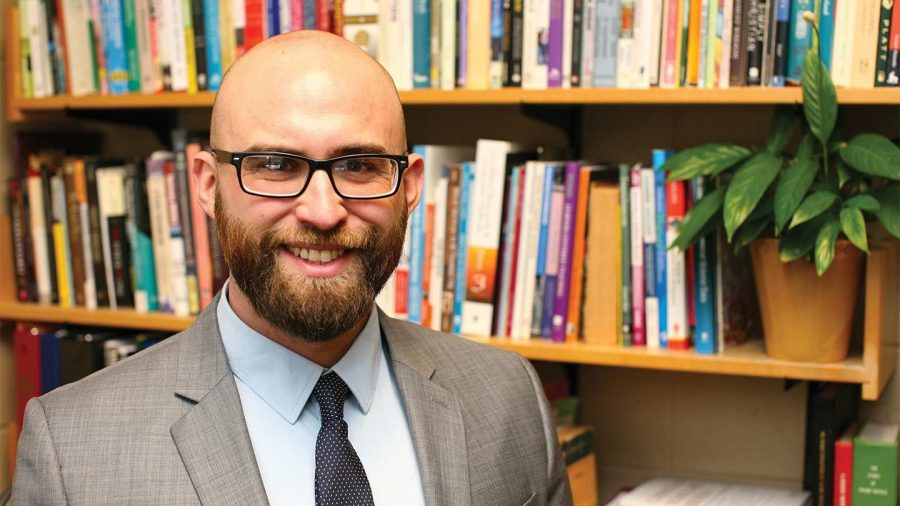
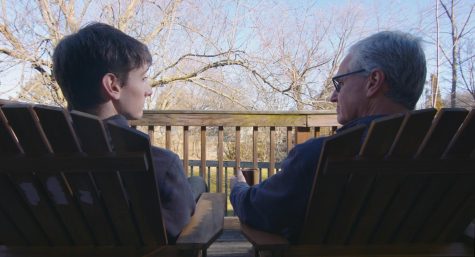
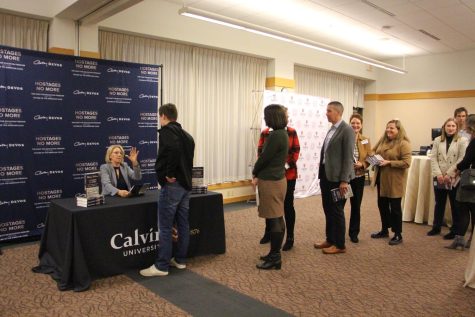
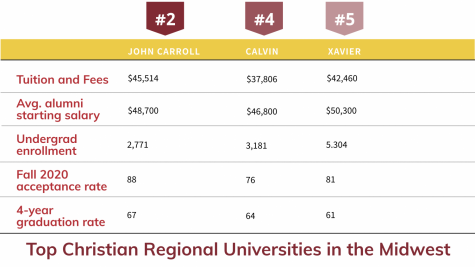
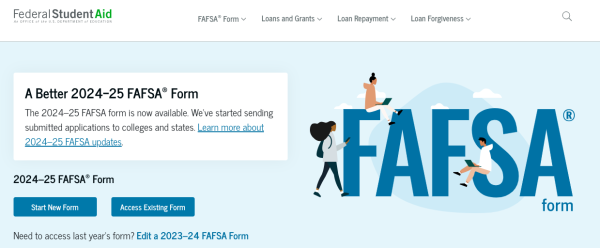




T. Quillen • Jun 23, 2021 at 4:49 pm
Theological issues aside (but Kudos to Calvin for standing their ground on orthodoxy!), take a close look at the date of the tenure application! and consider the following quote from the article: “Tenure positions are held by faculty with a terminal degree in their field and at least seven years’ full-time teaching experience with a rank of “instructor” or higher, according to the faculty handbook.” He was a baby doc in 2016 and tenure was applied for in 2017! If it usually takes 7 years and you don’t count pre-doc teaching years and scholarship, he’d have to wait until 2024 for serious consideration!
There’s more of a back story to the situation than appears in this article. Calvin has my respect for adhering to their own guidelines!
Casey Rice • May 7, 2018 at 9:20 am
Although the article seems to implicate the board as reacting to Prof Kuilema’s activism and support for the LGBTQ+ community, we don’t know if those are factors in the board’s decision not to offer tenure. There may be other factors as well; since the board isn’t required to detail the reason behind their decisions, the best we can do is guess. I think pouring out shame and judgment at this stage may be unwarranted.
My questions are: do other institutions of higher learning have a similar process regarding tenure or do they require greater transparency? What is the ideal practice here? Would public reporting of reasons for tenure denial pose risks to the individual?
John Weeda, class of 1968 • May 6, 2018 at 8:32 am
This action by the Board seems to be of one piece with the decision of the 2018 commencement committee not to print a letter from 1968 student body president, Gerb DeJong in the commencement program. The letter drew parallels between the cultural/political crises of 1968 and the present in a manner that apparently does not comport with the political correctness of the powers that be. It was rejected because it was not sufficiently “celebratory.” A copy was provided to Chimes on May 1st.
James Gilmore • May 4, 2018 at 10:25 pm
As a Calvin alum (2002), I’m extremely disappointed in my alma mater for their unwillingness to stand up for academic freedom against the hateful right-wing. This is a shameful day for Calvin College.
Joshua • May 4, 2018 at 10:12 pm
As a alumni and the child of 2 alumni, I a extremely disssapointed in Calvin College. It would make much more sense to immediately tenure this professor for having the integrity to stand up to racism, white privileged and homophobia.
Calvin should be a reflection of community and the diverse individuals that are in it. Shamefully silencing through tenure denial is a disgusting way to harm our children.
Is this worse than the former president bankrupting our college by gambling? Which is sin.
Ellen Hoebeke • May 4, 2018 at 8:33 pm
The college I knew was a place of discussion, differing views. I am ashamed of the Board. As the power group heads right and more and more requires lockstep, what us the faculty to do? Obviously being a bobblehead is to be adnurex there.
Jonny • May 4, 2018 at 4:53 pm
This college is headed in a horrible direction. Such a shame. Ashamed of our administration
Bruce • May 3, 2018 at 10:08 pm
Can you give the names and church affiliation of the PSC members? For clearity sake
Randy Buist • May 3, 2018 at 7:15 pm
Aa an alum, this is disheartening. While Calvin shaped me a great deal in the late 80’s and into the 90’s, there is a deep sense that leadership continues to move to the right theologically — and in turn hesitates to embrace those who challenge dominant thinking.
Nick • May 6, 2018 at 7:27 pm
What you call moving ‘right’ theologically has been classically regarded as ‘orthodox’. You might not like it, but I’m pleased Calvin College and the CRC are not quick to bow to social pressures and the political climate of victimhood the left wields as licence to get what they want on issues the Bible is clear on. Start with man you will end up with man centred conclusions. Start with God, and you get good theology.
Brianna Marshall • May 3, 2018 at 2:09 pm
Wow…..so this is what we’re doing now?
Ari Vangeest • May 3, 2018 at 10:10 am
Denied tenure for doing his job. Calvin College is a disgrace.